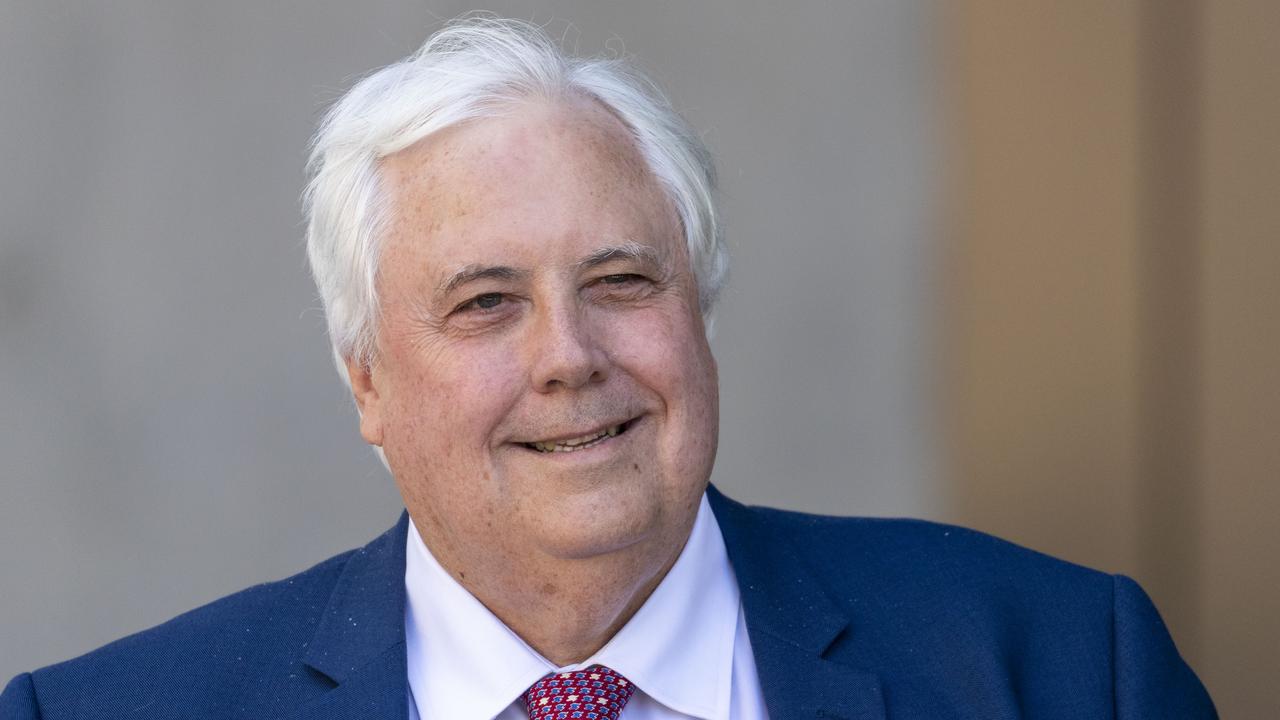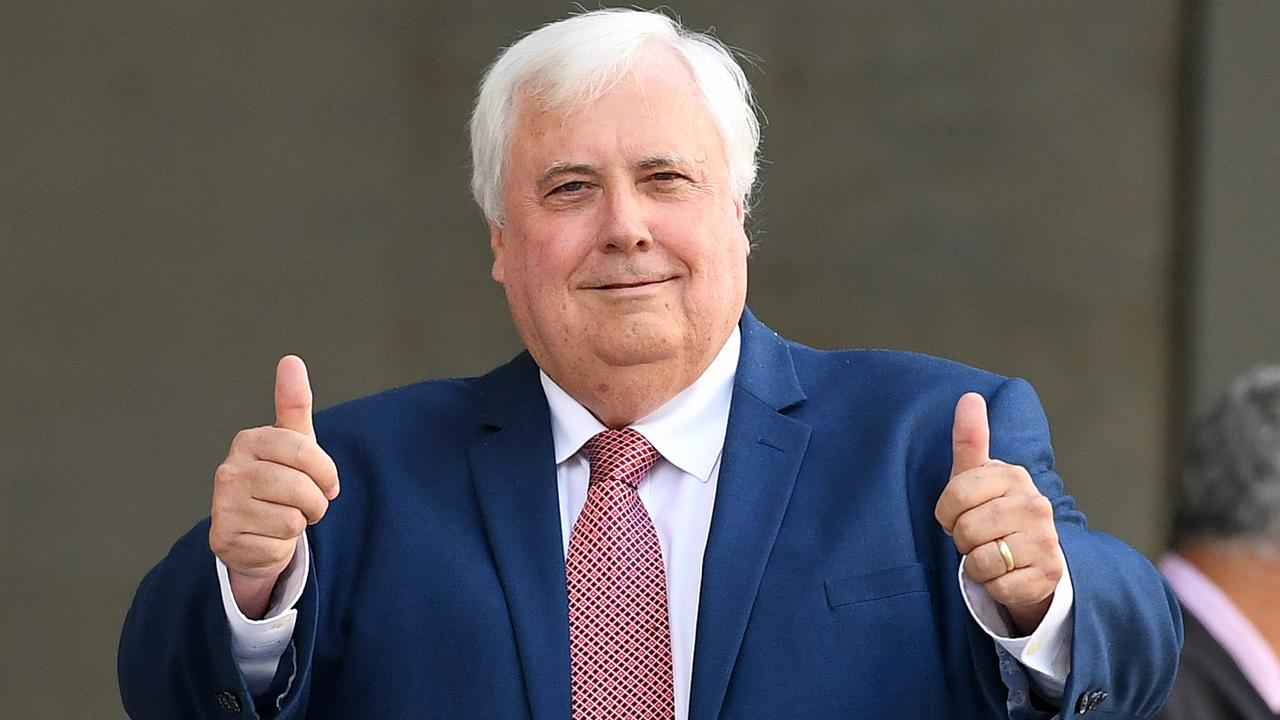Clive Palmer pay rises off as refinery strife deepens
Palmer managers told a meeting at his Queensland Nickel refinery that the business could not afford staff pay rises.

Clive Palmer’s managers told a meeting at his Queensland Nickel refinery in Townsville yesterday that the business was losing money, reliant on top-up funds from the parliamentarian and could not afford pay rises for staff.
As human resources heads described a severe downturn in the business, Queensland Treasurer Curtis Pitt disclosed in Brisbane that he had held commercial-in-confidence talks with Mr Palmer and senior staff.
Workers at the Yabulu refinery, one of the region’s largest private employers, told The Australian they were concerned about six-figure sums some staff were owed in long-service leave and other entitlements.
Mr Pitt said he could not disclose matters raised in meetings conducted in the context of a decline in the nickel price. “And of course we’re interested to see how that’s affecting their operations,” he added.
The Treasurer would not disclose what Mr Palmer wanted and said no decision had been made to provide government help or taxpayer-funded money to the refinery, which the resources tycoon was given by BHP Billiton when the global miner exited in 2009.
“Those discussions are commercial in confidence and it would not make me a very good Treasurer if I’m going to be discussing matters (relating to) a private company in a public forum,” Mr Pitt said. “There’s been no decision to provide any assistance to Queensland Nickel.”
As workers in Townsville were being told they faced a fifth consecutive year without a pay rise, Mr Palmer announced his pledge to establish a legal fund to help asylum-seekers and refugees at Nauru and Manus Island.
“This is a chance to show some humanity, and government ministers who are doing the wrong thing need to be exposed,’’ Mr Palmer said.
He declined to disclose the proposed amount of his financial contribution.
A senior source in yesterday’s refinery meeting said: “They said the place was not profitable, and that Clive was putting money in from his own pocket because the business could not make any money with the low nickel price ($US4.80 a pound).
“It didn’t go down well because the staff are hurting too. The refinery is turning into a rust-bucket. It has had no money spent on it in ages, workers who leave are not replaced, and maintenance is not happening. There is a hell of a lot of worry because some of the older staff need the long service leave entitlements to help pay for their retirement.”
Cash-flow problems for Mr Palmer, who has previously described himself as a billionaire, were confirmed by his senior lawyer Simon Couper QC in the West Australian Supreme Court this month. Mr Couper said Mr Palmer’s flagship company Mineralogy, which has relied on injections of capital from Queensland Nickel, was “not getting cash flow, and it’s causing us problems”.
There were more than 800 staff at the refinery when Mr Palmer took control. Sources close to the operation estimate the workforce now numbers 500. Mr Palmer maintains close and direct control over expenditure and has not been approving purchases of some products fundamental to the operation, according to a senior employee.
Queensland Nickel’s latest accounts, released last month, show a change in the accounting treatment to revalue the refinery’s property, plant and equipment to what is described as “fair value” of $2.2 billion.
BHP Billiton, which was concerned about environmental risk, valued property, plant and equipment at about $60 million when it exited in 2009. In his first year of ownership, Mr Palmer revalued it to about $600m.
The accounts show cash available to operate the refinery halved to about $18m compared with the previous year.
Mr Palmer had expected to be receiving hundreds of millions of dollars a year in royalties from China’s state-owned investment company, which is mining his iron ore tenements in a separate project in Western Australia. The partnership has collapsed with claims of fraud and ongoing litigation likely to last years. He declined to respond to questions from The Australian yesterday.



To join the conversation, please log in. Don't have an account? Register
Join the conversation, you are commenting as Logout